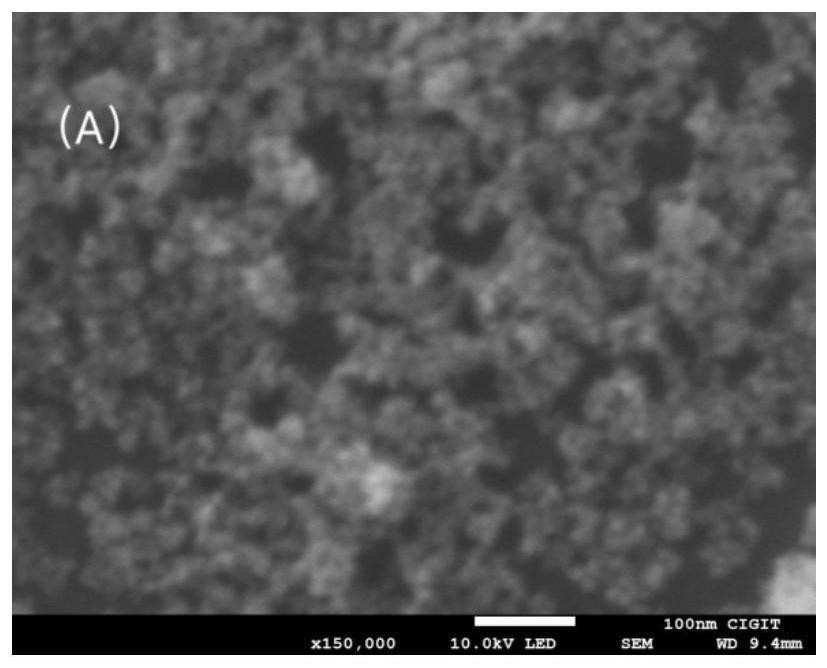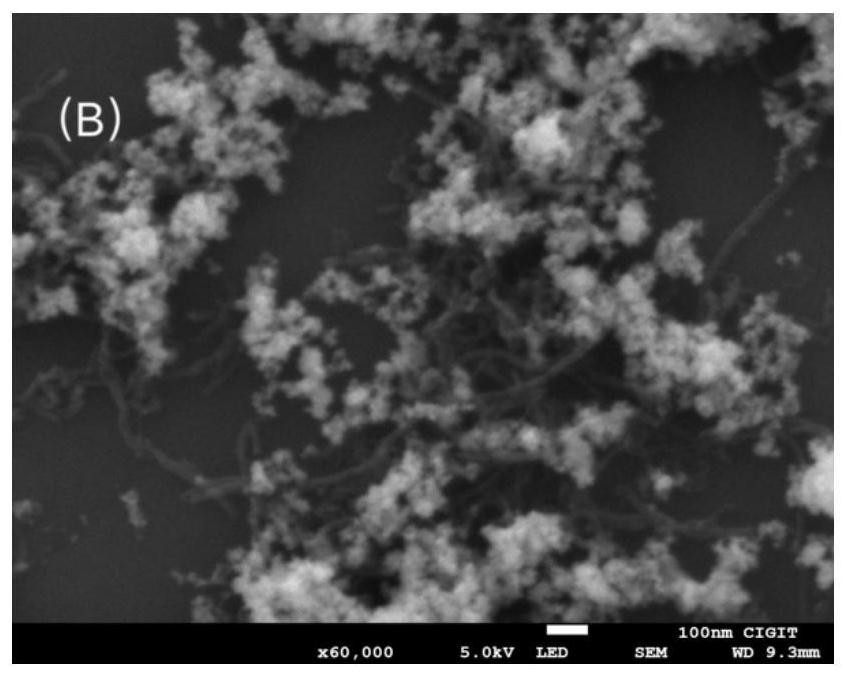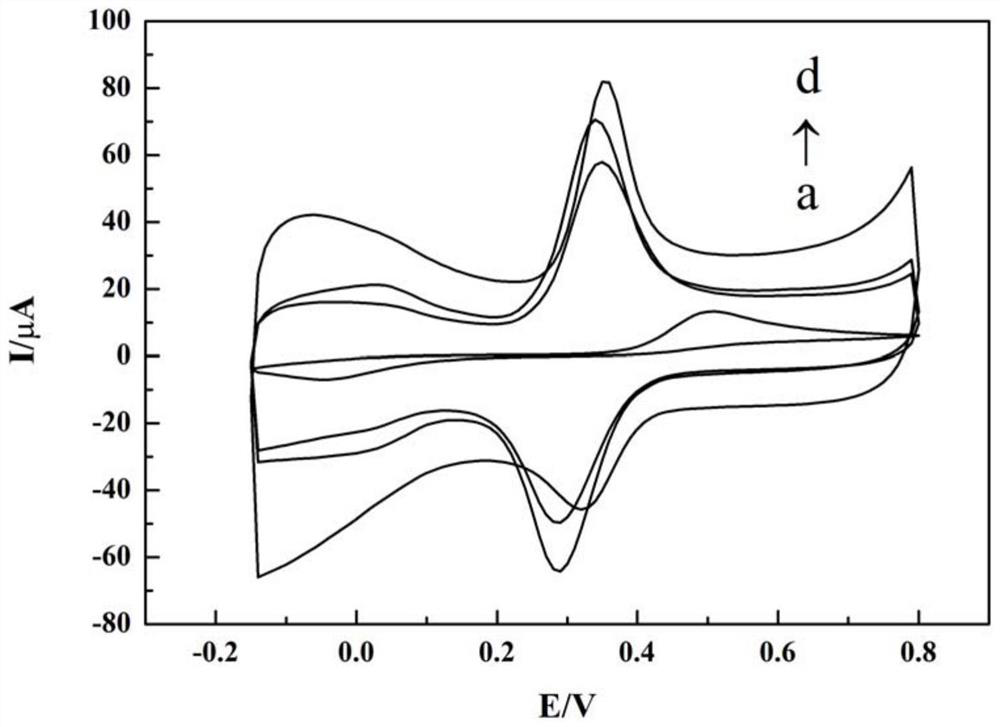Nanocomposite material, glassy carbon composite electrode and method for manufacturing both, electrochemical sensor
A technology of nano-composite materials and composite electrodes, applied in the field of electrode materials, can solve the problems of high cost, long time consumption, low sensitivity, etc.
- Summary
- Abstract
- Description
- Claims
- Application Information
AI Technical Summary
Problems solved by technology
Method used
Image
Examples
Embodiment 1
[0048] Pretreatment of MWNTs
[0049] Take 2 g of MWNTs and put them in the mixed acid mixed with nitric acid and hydrochloric acid with a ratio of 1:3 to reflux for 24 hours to prepare a sample solution, add excess water to the sample solution for repeated washing until the pH value of the sample solution is 7, and then The sample solution was dried in an oven to obtain acidified MWNTs.
[0050] Among them, MWNTs are multi-walled carbon nanotubes, which have the advantages of very high stability, good current carrying capacity, and excellent electronic behavior. The acidification of MWNTs is firstly to remove impurities in MWNTs, and secondly to introduce carboxyl groups (-COOH) on MWNTs, and then form carboxyl functionalized multi-walled carbon nanotubes (MWCNTs-COOH), which can enhance their electron transfer. ability, the electron transfer between the electrode and the electrolyte will be easier, and the dispersibility in aqueous solution will be improved due to the intro...
Embodiment 2
[0062] Pretreatment of MWNTs
[0063] Take 2 g of MWNTs and place them in a mixed acid mixed with nitric acid and hydrochloric acid at a ratio of 1:3 to reflux for 26 hours to prepare a sample solution. Add excess water to the sample solution for repeated washing until the pH value of the sample solution is 7, and then The sample solution was dried in an oven to obtain acidified MWNTs.
[0064] CeO 2 preparation of
[0065] CeO was treated by hydrothermal method 2 For preparation, 5.5gCe(NO 3 )·6H 2 O was dissolved in 100 g of pure water, stirred by magnetic force at room temperature, and NH was added during the stirring process. 4 OH solution until the pH value in the solution was 11 to obtain a gel mixture, followed by washing, drying and calcination to obtain CeO 2 .
[0066] Specifically, the obtained gel mixture is dried in an oven at a temperature of 130° C. for 12.5 hours, and then calcined in a muffle furnace at a high temperature of 560° C. for 4.5 hours.
[0...
Embodiment 3
[0075] Pretreatment of MWNTs
[0076]Take 2 g of MWNTs and place them in a mixed acid mixed with nitric acid and hydrochloric acid at a ratio of 1:3 to reflux for 24.5 hours to prepare a sample solution. Add excess water to the sample solution for repeated washing until the pH value of the sample solution is 7. Afterwards, the sample solution was dried in an oven to obtain acidified MWNTs.
[0077] CeO 2 preparation of
[0078] CeO was treated by hydrothermal method 2 For preparation, 4.8gCe(NO 3 )·6H 2 O was dissolved in 100 g of pure water, stirred by magnetic force at room temperature, and NH was added during the stirring process. 4 OH solution until the pH value in the solution was 11 to obtain a gel mixture, followed by washing, drying and calcination to obtain CeO 2 .
[0079] Specifically, the obtained gel mixture was dried in an oven at a temperature of 122° C. for 11.8 hours, and then calcined in a muffle furnace at a high temperature of 546° C. for 3.8 hours. ...
PUM
 Login to View More
Login to View More Abstract
Description
Claims
Application Information
 Login to View More
Login to View More - R&D
- Intellectual Property
- Life Sciences
- Materials
- Tech Scout
- Unparalleled Data Quality
- Higher Quality Content
- 60% Fewer Hallucinations
Browse by: Latest US Patents, China's latest patents, Technical Efficacy Thesaurus, Application Domain, Technology Topic, Popular Technical Reports.
© 2025 PatSnap. All rights reserved.Legal|Privacy policy|Modern Slavery Act Transparency Statement|Sitemap|About US| Contact US: help@patsnap.com



